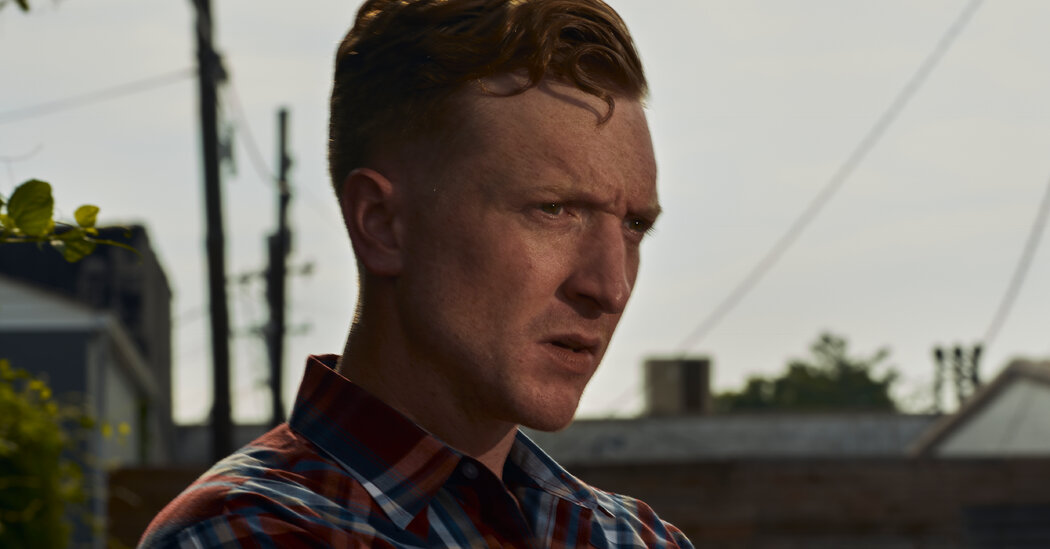Childers grew up in East Kentucky in the shadow of the Baptist Church. His father had a job in the coal industry, and his mother worked at the health department. While the family had a double-wide trailer with running water and electricity, the neighbors didn’t, so he and his sibling were acutely aware that they were “one bad decision” away from disaster. At 15, Childers moved to a new school, where he coped with being the new kid by spending his lunch playing guitar. Eventually, his classmates took notice. They invited him to sing at parties, and introduced him to some new music.
“Drive-By Truckers became the soundtrack to my teenage angst,” he said, wearing dark jeans and a button-up despite the 100-degree weather. He started writing his own music, and quickly built a following across Kentucky and West Virginia — country fans were eager to hear fiddle and steel guitar, and his voice carried that lonesome sound of someone who’d studied both Ricky Skaggs and Kurt Cobain. When he sings live, his eyes burn with the ferocity of a preacher, and fans hang on to every word.
When “Purgatory,” co-produced by another Nashville boundary-pusher, Sturgill Simpson, was released, things happened fast. Childers went from opening shows with his band, the Food Stamps, to headlining the same venues in a little over a year. In 2020, he made his first overtly political statement with “Long Violent History,” an album fueled by his rage over the police killing of Breonna Taylor, a fellow Kentuckian. He wanted to be explicit, releasing the title track with a video statement in which he spoke directly to his white rural fans, telling them, “We can stop being so taken aback by Black Lives Matter.”
“I felt compelled,” he said, leaning forward in his chair and stiffening up as he talked. “I started looking at the people listening to me, and I was listening to them. I wasn’t stretching out in some weird, forced way — I wrote that song in 10 minutes.” Now he sees it as a responsibility not just to speak for his people, but to grow with them. “There are a lot of artists out there trying to do the work,” Childers said. “Every little effort to give someone a glimpse into that light helps put water on this fire before it boils over into white-hot rage.”





